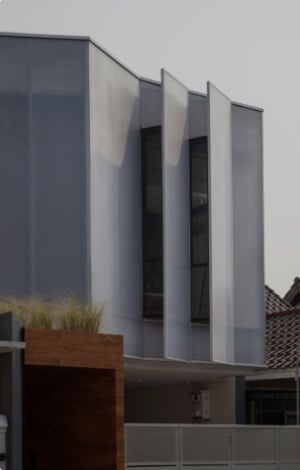Why Timber is Important in Salutogenic Design - Intrim




What is Salutogenic Design and why is it important?
Salutogenisis is a medial approach that focuses on things that support health and well-being, rather than on the causes of the disease. More specifically, it is concerned with the relationship between health, stress and coping more than the actual treatment.
While treatment is of course the most important part of recovery and healing, being focused on wellbeing and how patients feel through the recovery journey is just as important to support.
It is proven that nature plays a role in healing, and in a clinical environment this can be difficult to replicate. Timber is an element that can be introduced to an interior that has been proven to lower stress to support faster healing, and therefore supports a salutogenic design.


How do you achieve it?
Organically we have witnessed a shift towards interiors that are homely and less clinical, and it seems this is going to continue.
Health facilities can be stressful places for people of all ages, so to combat this anxiety we are seeing the use of bright colours, beautiful art and natural materials in common areas such as waiting rooms and hallways. Multiple colours are often used throughout to help influence mood and timber if often featured.


When you are looking to reduce stress and anxiety as part of salutogenic design, timber has been proven time and time again to do just that.
Not only do timber handrails tick the box for safety, mobility and wall protection, but offer another opportunity to maximise health and wellbeing in health care facilities that are focused salutogenisis and not just treatment and recovery.


Biophilic Design
Running adjacent to the ideals of salutogenic design, biophilic design focuses on design that creates living spaces that benefit us (humans) through evidence-led design principles. As part of this theory, research has proven that we are better off mentally and physically with timber.

How can timber help with Salutogenic design?
Here's the proven research around timber and health:
- Timber lowers stress levels
- Timber improves attention and focus
- Timber increases creativity
- Timber reduces pain perception
- Timber can help us heal faster
- Timber fosters social interaction and activity levels in the elderly, potentially slowing mental and physical decline
- Using timber in interiors makes us feel more comforted
- Timber improves cognitive ability
With all these wonderful benefits proven from studies around the world, timber is an obvious choice for use in health facilities.
By creating welcoming, uplifting spaces, we can only hope this continues to improve healthcare, recovery and positively influences patients, visitors and those who work at those facilities.
For more information on Intrim and their product range, head to the Intrim Archify page.
Article sourced from Intrim




 Indonesia
Indonesia
 New Zealand
New Zealand
 Philippines
Philippines
 Hongkong
Hongkong
 Singapore
Singapore
 Malaysia
Malaysia







